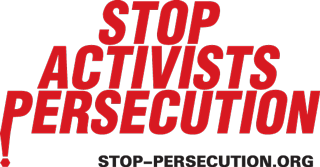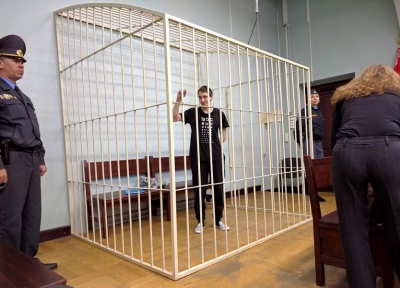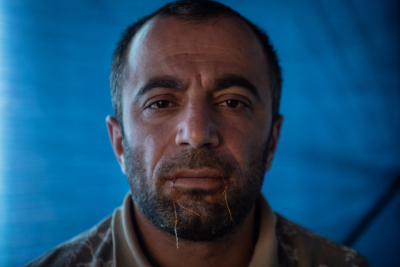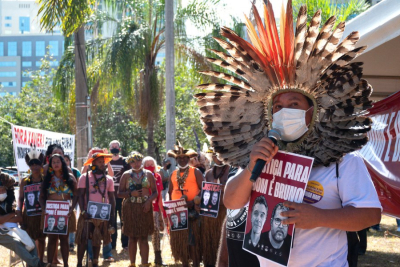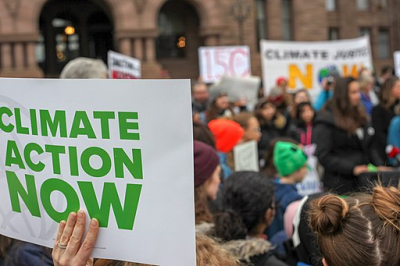On that day, around 35 people gathered at the traditional meeting point at the Theater of Opera and Ballet. Like most other mass events in Minsk, Critical Mass was also attended by a trained human rights observer, who was not present in plainclothes. A bit later the participants rode onto the road and started to ride along their usual route. In about 10 minutes, a traffic police car appeared behind the cyclists and ordered them to move onto the pavement. Those who didn't follow the order were hit by police cars and one of them, Stanislav Konovalov, was knocked down.
Officers detained six people in the event, including the human rights observer. They were forcefully thrown onto the floor of a bus and kicked in the face and stomach. Their bikes were thrown over them, and the police officers forbade them from going all the way to the station. Four of them were released on the same day, but Stanislav Kovalov and Dzmitry Paliyenka remained under arrest. On the following day, both their flats were searched.
In the following month, there were a few administrative hearings on the cases of other activists. They were all fined for traffic regulations. Stanislav Konovalov was set free from the temporary detention center, but Dzmitry Paliyenka was accused of assaulting a police officer and was transferred to a detention center.
Critical Mass Shut Down
There were a few attempts to hold more Critical Mass events. Many participants later received administrative protocols for traffic regulations, though they hadn't been stopped during the ride. Subpoenas were even delivered to some activists who allegedly hadn't participated in the ride at all. There were numerous events to show solidarity with Dzmitry Paliyenka.
Trial of Paliyenka: prison for being an active citizen
In October 2016, the trial of Dzmitry Paliyenka was held. The police officer who had allegedly been attacked hadn't suffered any injuries, besides that his jacket was torn because Dzmitry Paliyenka grabbed the sleeve of the jacket and fell down as he was being hit by the policeman. Paliyenka was a part of the distribution of pornographic video that he posted on his social media profile. Paliyenka contends that these are false charges. His lawyer and human rights defenders believe that the accusation of distribution of pornography was added with the aim of discrediting him in the public eye, attempting to clean the case of political connotations. In court, the activist was repeatedly asked about his political activities and civic stance.
On October 12, 2016, Dzmitry Paliyenka received a two-year suspended sentence and was released, but in April of 2016 the decision was revoked by the district court in Minsk. Consequently, Dzmitry Paliyenka was sent to a correctional colony to serve a one and a half year sentence. The reason for the revocation was Paliyenka’s active participation in protests about unemployment benefits and his stance against the development of a place where mass executions took place in Soviet times.
On April 13, 2016, a number of human rights organizations in Belarus recognized Dzmitry Paliyenka as a political prisoner and demanded his immediate release, emphasizing the peaceful nature of the action and the fact that the use of violence by the police was unjustified. On August 22, 2017, Amnesty International recognized Paliyenka as a prisoner of conscience.
Dzmitry Paliyenka was released on October 24, 2018 after serving his sentence. While imprisoned he has been providing information about pressure being applied to him by the prison administration - he was mistreated, denied medical care and visits from relatives, segregated from other prisoners, etc.
The activist did not walk for a long time. In March of 2019, he was arrested again and he is facing a triple charge (hooliganism; desecration of buildings or other structures with cynical words or pictures; damage of property on public transport or in other public places; religious hostility or discord; deliberate activity aimed at inciting racial, ethnic, and religious hostility or discord; and degrading national honor and dignity). He remains in custody awaiting a decision on his pre-trial restrictions.
Through this persecution, the authorities have not only succeeded in neutralizing an active citizen, but in stifling the ecological initiative of Critical Mass, which has occasionally attracted a very small number of participants since April 2017. Not everyone is ready to sacrifice their freedom for The Freedom Of Riding On The Road. Every time there is a public call for action, the people in plainsclothes appear at the meeting point for the activists and follow them.
Further reading
ENG 30/04/2016 Report on monitoring the Critical Mass Cycling event on 29 April 2016 (Viasna)
RUS 06/05/2015 Statement of environmental interest groups in relation to the violent dispersal of the Critical Mass event (ecohome-ngo.by)
ENG 20/07/2016 Viasna writes to UN Working Group on Arbitrary Detention over Dzmirty Paliyenka case (Viasna)
ENG 14/04/2017 Expert Conclusion on Prosecution of Dzmitra Paliyenka (Viasna)
ENG 14/04/2017 Statement: Release Political Prisoner Dzmitry Paliyenka (Viasna)
ENG 21/08/2017 Dzmitry Paliyenka is a prisoner of conscience (Amnesty International)

